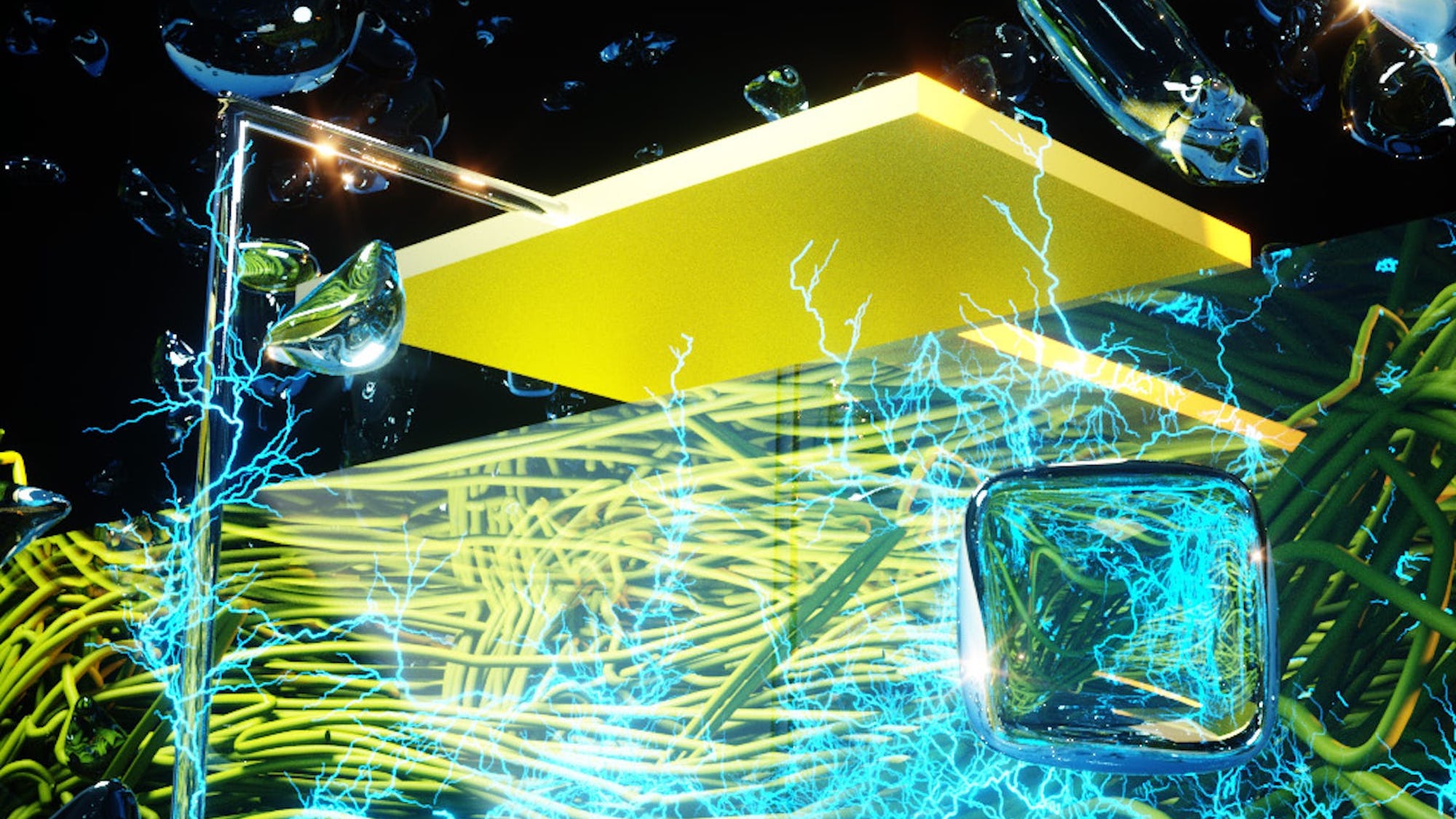

Researchers recently constructed a material capable of generating near constant electricity from just the ambient air around it—thus possibly laying the groundwork for a new, virtually unlimited source of sustainable, renewable energy. In doing so, and building upon their past innovations, they now claim almost any surface could potentially be turned into a generator via replicating the electrical properties of storm clouds… but trypophobes beware.
According to a new study published today with Advanced Materials, engineers at the University of Massachusetts Amherst have demonstrated a novel “air generator” (Air-gen) film that relies on microscopic holes smaller than 100 nanometers across—less than a thousandth the width of a single human hair. The holes’ incredibly small diameters rely on what’s known as a “mean free path,” which is the distance a single molecule can travel before colliding with another molecule of the same substance.
[Related: The US could reliably run on clean energy by 2050.]
Water molecules are floating all around in the air, and their mean free path is around 100 nm. As humid air passes through Air-gen material’s miniscule holes, the water molecules come into direct contact with first an upper, then lower chamber in the film. This creates a charge imbalance, i.e. electricity.
It’s the same physics at play in storm clouds’ lightning discharges. Although the UMass Amherst team’s product generates a miniscule fraction of a lightning bolt’s estimated 300 million volts, its several hundred millivolts of sustained energy is incredibly promising for scalability and everyday usage. This is particularly evident when considering that air humidity can diffuse in three-dimensional space. In theory, thousands of Air-gen layers can be stacked atop one another, thus scaling up the device without increasing its overall footprint. According to the researchers, such a product could offer kilowatts of power for general usage.
[Related: How an innovative battery system in the Bronx will help charge up NYC’s grid.]
The team believes their Air-gen devices could one day be far more space efficient than other renewable energy options like solar and wind power. What’s more, the material can be engineered into a variety of form factors to blend into an environment, as contrasted with something as visually noticeable as a solar farm or wind turbine.
“Imagine a future world in which clean electricity is available anywhere you go,”Jun Yao, an assistant professor of electrical and computer engineering and the paper’s senior author, said in a statement. “The generic Air-gen effect means that this future world can become a reality.”
